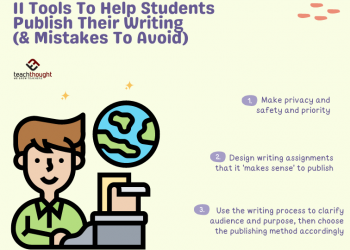As I glide into my 20th year in higher education and fourth year as an associate dean, I think about her more often. Let’s call her Soraya, my best-friend and co-navigator through a brutal doctoral program. She was a cancer survivor. She had gone into remission and won the first round. But the cancer re-emerged. Unfortunately, Soraya passed away shortly after we completed our program.
I often wonder if the stress that we experienced in our struggle to obtain our Ed.D.s somehow contributed to her death. I also sometimes envision what it would be like had her path to and through higher education not been compressed into so few years. Perhaps we would be continuing our journeys to full professorship and then into administration and leadership together.
I often see Soraya in the many women faculty of color who have graced my path in higher education over the years. At times, as I interact with them, I observe the lingering battle scars in their eyes. I feel the fatigue in their spirits. I also hear story after story of endurance and perseverance—and of taking those wounds and using research and scholarship to share their stories and to lend voice to those who are often voiceless.
As the scenarios arise, I am grateful to be in a position of influence and to serve as a coach, friend and mentor to others who seek to dislodge themselves from the -isms—racism, sexism, classism and so forth—that attempt to block our pathways. I have come to recognize that my whole existence as a woman of color in administration can and should serve as means of resistance and an act of liberation. Particularly, as a Black woman, I represent about 9 percent of the leadership in higher education.
As in the case of Soraya, who had left her home in East Asia to pursue her studies—as well as a daughter who stayed abroad with her father after Soraya and he divorced—I have frequently witnessed the impact of immigration on women of color in higher education. Women who depart their home countries for academic careers in the United States are frequently forced to leave their families behind. This leads to feelings of isolation as they adjust to new cultural norms while often struggling with speaking English as a second language. Such experiences of separation and adversity impact immigrant women deeply—both as they pursue their doctoral programs and during their road to tenure.
Take, for example, Elina, who left her home in Cuba to work toward her Ph.D. in the United States. She worked in custodial services as she completed her doctoral program and raised a son alone in America. Now serving as an assistant professor, she is overloaded with service, has no release time and is running a new program. She is also excelling and, as a result, is going up for tenure a year early. But the toll of overworking, overcommitting and overperforming has her close to burnout.
In contrast, Deana was the first African American woman chair of her department. Yet although she won by official vote, a number of faculty members protested and stopped coming to faculty meetings because “they did not feel safe” under her leadership. (Deana is 5’4″ in stature and weighs about 125 pounds.) Deana’s dean at the time did not intervene. That led to a legal dispute. Deana won but was also forced into early retirement.
How do we respond to such stories and scenarios as women of color in leadership positions in higher education? Do we sit in silence? Do we take the “pull yourself up by the bootstraps” approach? Or do we serve as a coach and help to create spaces to mentor, advocate and uplift?
A New Opportunity
COVID-19 has presented a distinct opportunity to creatively transform higher education. Women of color in higher education have felt the impact of COVID more intensely than other groups, simply because proportionally greater numbers of people of color have contracted COVID. But beyond that, they must deal with the sociopolitical context of America, which includes anti-Asian hate campaigns, ongoing undocumented immigration policies that limit opportunity in higher education and acts of police violence, among other major challenges.
As a woman administrator of color, I have found myself further pondering my role as a liberatory leader. How can I catalyze change within a system that has historically excluded minoritized groups? Liberatory leadership requires BIPOC administrators like me to challenge systems and policies, as well as structural and institutionalized norms that further perpetuate inequality. We must protect other women of color, be co-conspirators for social justice and equity, practice empathy, offer coaching, and model radical self-love.
- Providing protection. Often, women of color faculty members just need to hear simple words like, “Girl, I got your back.” “You are not alone.” “I’m going to help you.” “What do you need?” “How can I support you?” While faculty women of color are certainly not meek, feeling safe, as Maslow often states, is the first level of creating self-actualization.
- Becoming co-conspirators for social justice and equity. Protection is not a one-sided process. As a liberatory leader, I do not sit in silence as my faculty fights for new programming or policies that keep diversity, equity and inclusion at the foreground of the work that we do. I use my voice with the executive leadership team and community partners to highlight why the work is important. The women faculty of color around us continue to keep us grounded, to present new perspectives and approaches. We must be dynamic co-conspirators who leverage our expertise to support each other.
- Practicing empathy. I have become more aware as a parent later in life of the impact that parenting has on workplace balance, especially on the road to tenure. COVID-19 has reminded us that the traditional 8-to-5 working structure does not lead to maximum productivity. While faculty may not have the standard 8-to-5 schedule, parents are still balancing work and home as whole beings who deserve flexibility and the confidence that we as leaders trust them to do their best.
- Offering coaching. In each example that I’ve mentioned, we as administrators have an opportunity to use an assets-based approach to strategizing solutions that are anchored in the faculty members’ professional purpose, while simultaneously reminding them of how to navigate institutional policies and procedures. In other words, we highlight faculty strengths first and use those strengths to address any areas in which that may need professional growth and development.
- Modeling radical self-love. On an airplane, one of the first rules of safety is to place your oxygen mask over your own face before you help the other people around you. As BIPOC administrators, we cannot lead without first tending to our own socioemotional needs. As Audre Lorde states, “Caring for myself is not self-indulgence, it is self-preservation, and that is an act of political warfare.” By caring for ourselves, we model it for our women faculty of color. We model that it is OK to say no. We model that it is OK to love ourselves and speak kindly to ourselves. We model that it’s OK to prioritize our families without guilt or shame.
Liberatory leadership demands that we reassess, reflect, re-envision and reinvent. As BIPOC women administrators, we must be deliberate about bringing our whole authentic selves to our institutions as we support and advocate for other faculty women of color, so that they can thrive and stay in alignment with their professional purposes in academe. At the same time, those of us who are in leadership positions must continue to be bold and brave as we stand up against the various injustices that obstruct productivity and progress for all faculty members—and particularly women of color in higher education workspaces.
Although Soraya is no longer here, she’s still with us. She is Elina. She is Deana. She is you and me.
Source by www.insidehighered.com










